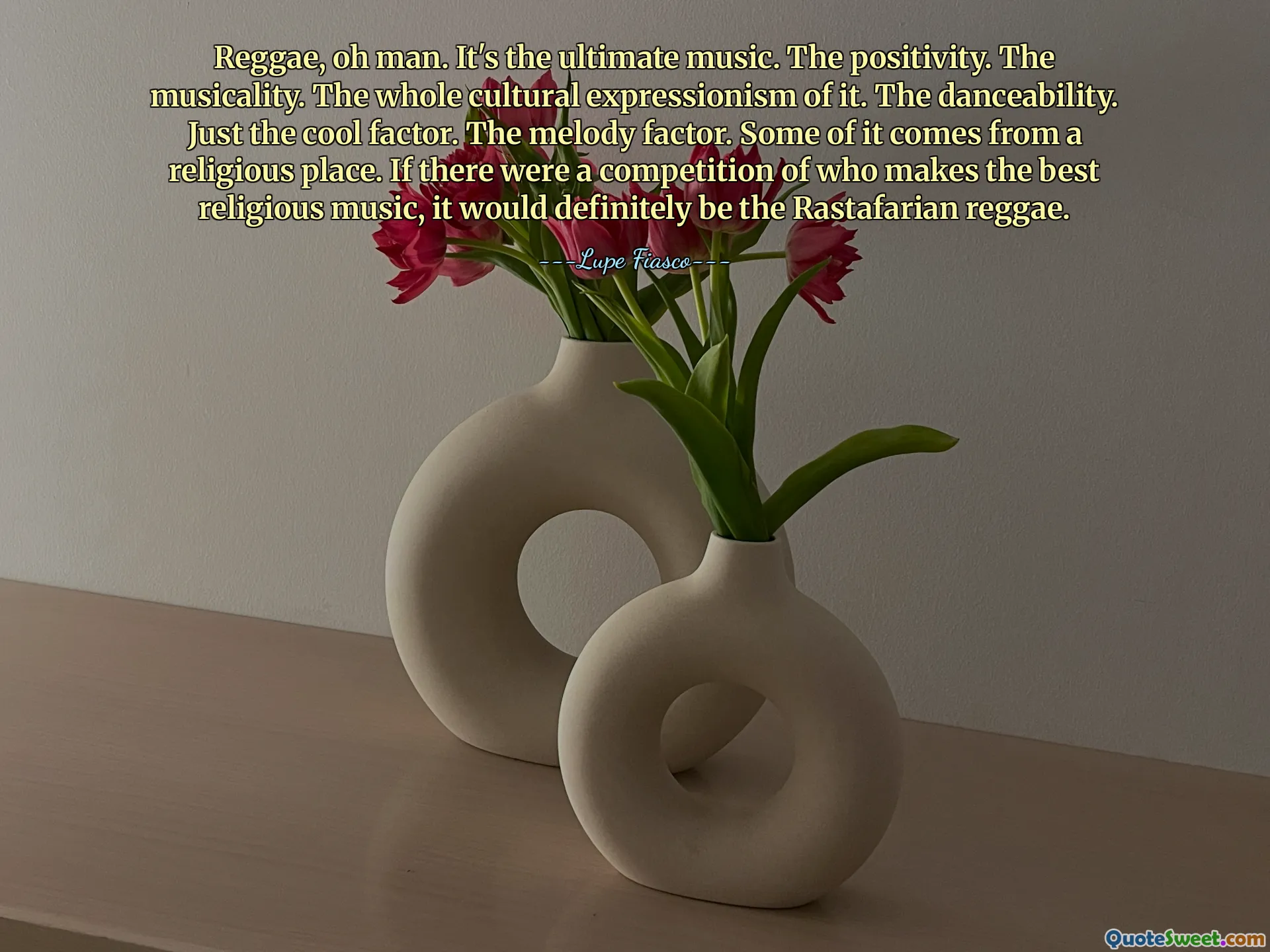
Reggae, oh man. It's the ultimate music. The positivity. The musicality. The whole cultural expressionism of it. The danceability. Just the cool factor. The melody factor. Some of it comes from a religious place. If there were a competition of who makes the best religious music, it would definitely be the Rastafarian reggae.
Reggae music holds a profound place in cultural identity and musical expression. Its influence extends beyond mere sound; it embodies positivity, resilience, and spiritual depth. The genre’s rhythmic and melodic elements create an atmosphere that invites both movement and contemplation, making it highly danceable and emotionally resonant. Artists like Bob Marley have demonstrated how reggae serves as a vehicle for social and political messages, often rooted in a religious or spiritual worldview, particularly Rastafarianism. This spiritual dimension enriches the music, imbuing it with a sense of purpose and authenticity. The cultural expression of reggae encompasses language, fashion, and outlook, forming a holistic identity that resonates globally. Its roots in struggle, hope, and spiritual belief position it as more than just entertainment; it’s a cultural movement that promotes unity and positivity. The comparison of reggae’s spiritual nature to other religious music underscores its depth and significance. Ultimately, reggae’s appeal lies in its genuine expression of cultural identity and spiritual aspiration, making it a powerful and enduring genre that continues to influence artists and audiences worldwide.







